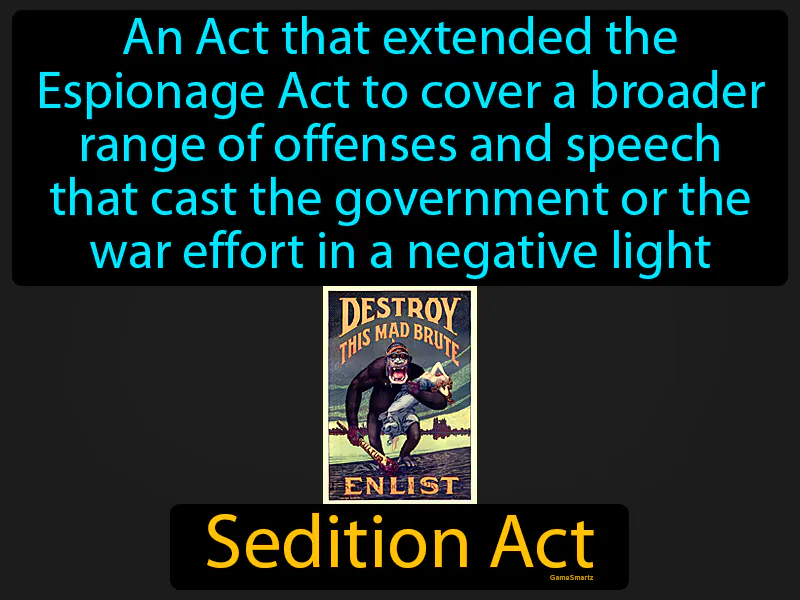Sedition Act
Sedition Act:
The Sedition Act of 1918 was important because it showed how the U.S. government limited free speech during World War I to prevent criticism of the war effort. This law highlighted tensions between national security and individual rights, an issue that still matters today. For example, debates about balancing safety and freedom continue in discussions about social media and misinformation. The Sedition Act reminds us that while security is important, protecting freedom of speech is also crucial for a healthy democracy. In daily life, this means being able to express opinions without fear of punishment, allowing diverse ideas to be shared and discussed openly.

Practice Version

Sedition Act: Extended the Espionage Act to cover a broader range of offenses that cast the war effort in a negative light. Sedition Act. The Sedition Act was a law that made it illegal to criticize the government during wartime.
